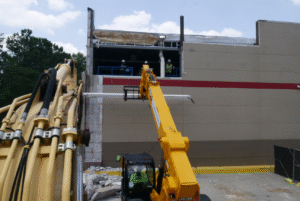
What Are Digital Permits?
Businesses and people utilize digital permits, computerized counterparts of conventional paper permits, for various uses, such as events, renovations, and buildings. Digital permits reduce the need for physical documentation and in-person submissions by streamlining the whole permit acquisition process via technology. In cities like Denver, digitizing permits has significantly improved efficiency for local businesses and residents. You’ll need to look into the city of Denver permits to understand the shift toward digital processes.
Initially, digital permits may seem like a complex adjustment, but they serve as a more agile alternative to traditional methods. With local governments increasingly adopting these solutions, it’s easy to find a scenario where digitization becomes the new standard. Transitioning permits to a digital format simplifies oversight and management, making it easier for authorities to monitor compliance and issue approvals swiftly.
Benefits of Digitizing Permit Applications
The benefits of shifting from traditional paper-based permits to digital formats are numerous and impactful. Let’s explore some key advantages in detail:
- Efficiency: Digital technology significantly reduces processing time compared to traditional methods. The automation and reduced manual labor mean that applicants receive approvals in a fraction of the time.
- Accessibility: Permits can be accessed and submitted from anywhere, anytime, using online platforms. This flexibility is particularly beneficial for businesses with tight deadlines and those working in remote locations.
- Cost-Effectiveness: Reduces operational costs by minimizing the need for paper and physical storage. Over time, the savings on stationery, printing, and storage become substantial.
- Environmental Impact: Digital permits contribute to a reduced carbon footprint by lowering the need for paper and physical transportation. This eco-friendly shift supports global sustainability efforts.
For instance, according to an article, cities that have adopted digital permits have observed significant improvements in efficiency and sustainability. Reducing paper usage alone positively affects the environment and operational smoothness.
How to Transition from Traditional to Digital Permits
Making the transition from traditional to digital permits requires a well-thought-out strategy. Here are steps to help guide organizations through this transformative process:
- Assessment: Evaluate your current permit processes to determine areas that can be digitized. Identify inefficiencies and pain points that digital solutions could address.
- Research: Explore various digital permit solutions to find the best fit for your needs. Consider factors such as user-friendliness, scalability, and cost. Thorough research will help you choose a solution that perfectly aligns with your organizational goals.
- Implementation: Work gradually to shift from paper-based systems to digital ones, ensuring all stakeholders are on board. Incremental steps allow for smoother transitions and fewer disruptions to daily operations.
- Training: Conduct training sessions for staff and users to ensure they are comfortable with the new digital processes. Effective training programs will mitigate resistance and promote proficiency in the new system.
Transitioning is about adopting new technology and changing the organizational culture to embrace digital solutions. Ongoing support and troubleshooting are crucial for long-term success.
Common Challenges and Solutions
While the move to digital permits offers many benefits, it has challenges. Addressing these potential issues head-on can ensure a smoother transition.
- Technical Issues: Digital systems sometimes encounter technical problems like software bugs or server downtime. Partnering with a reliable IT provider to manage the digital platform can prevent and resolve these issues.
- Resistance to Change: Staff and stakeholders may resist adopting new technologies. Educate them on the benefits and provide ongoing support to ease the transition. This could include regular updates, feedback sessions, and adjustments to the system based on user experiences.
- Data Security: Digital permits involve sensitive information that needs to be protected. Implement robust cybersecurity measures to secure your data. Regular audits and updates to security protocols are essential to safeguard against potential breaches.
Understanding these challenges and preparing solutions can facilitate a more practical shift to digital permits. Transparency and communication are critical components in managing such transformation endeavors.
Case Studies and Real-Life Examples
Learning from others who have successfully transitioned to digital permits can provide valuable insights and best practices. Many municipalities have implemented digital systems with remarkable results.
A study by GovTech found that cities utilizing digital permits experienced a 30% reduction in processing times. This substantial decrease demonstrates the efficacy of digital licenses in streamlining administrative tasks and enhancing overall efficiency.
For example, a midsized city implemented a digital permitting system and saw an immediate reduction in backlog and quicker turnaround times. It increased business and resident satisfaction while freeing administrative staff to concentrate on more strategic endeavors.
Future Trends
Digital permits are evolving, with future trends promising to render these systems more efficient and user-friendly. Here are some key trends to watch:
- Artificial Intelligence (AI): AI can be integrated to provide better analytics and more intelligent decision-making. Predictive algorithms can help assess permit applications faster and more accurately.
- Mobile Applications: Increased use of mobile apps will offer greater accessibility, allowing users to apply for permits and check statuses directly from their smartphones.
- Blockchain Technology: Blockchain can improve the security and transparency of digital permits by guaranteeing data integrity and lowering the possibility of fraud.
To guarantee that the transition from traditional techniques remains beneficial in the future, you must keep up with the most recent developments and continuously improve digital permit systems. Embracing these advancements enables local governments to improve their operational effectiveness and provide enhanced services to their residents.






